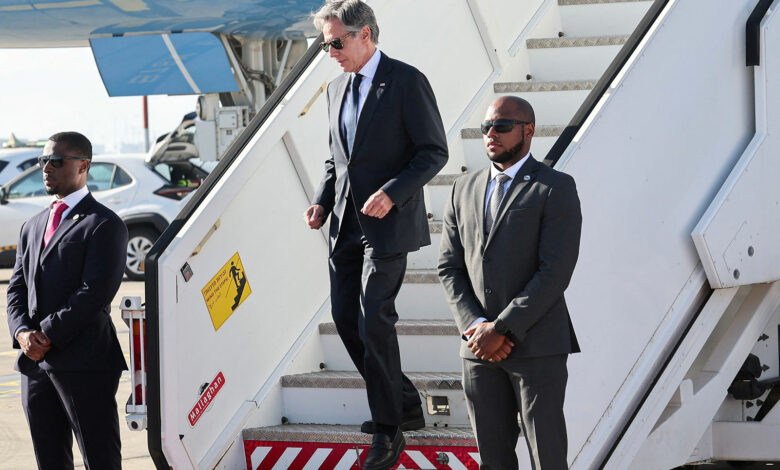
US Secretary of State Antony Blinken began his ninth visit to the Middle East on Sunday, starting with a visit to Israel, as part of ongoing efforts to help reach a ceasefire in the region.
Israeli Prime Minister Benjamin Netanyahu said that Israel is engaged in complex negotiations to return its hostages held in Gaza, but it also has principles that must be preserved as they are vital to its security.
Strategic experts stressed Egypt’s adherence to its firm position on the Palestinian issue, the Rafah crossing and the Philadelphi Corridor.
An expert at the Egyptian Center for Strategic Studies, Sobhy Assila, said that the Egyptian position on the Rafah crossing and the Philadelphi (Salah al-Din) corridor have been firm and clear from the start.
He explained that the Egypt’s position is based on the considerations of Egyptian national security, namely the Palestinian issue, the interests of the Palestinian people, and the need for overall security and stability in the region.
Assila pointed out that the continued occupation in this region means that Israel is besieging Gaza, and therefore, if it remains in it must bear its responsibility as an occupying state as its presence is strangling the strip.
He pointed out that the Rafah crossing is completely “Palestinian-Egyptian” and it is unacceptable for Israel to control it.
Strategic expert Samir Farag said that Egypt maintained the 2014 agreement supplementing the peace treaty and closed and blew up all the tunnels – thus if Israel insists on being present in the Philadelphi corridor, this would be a violation of the terms of the peace treaty between both countries.
And the advisor to the Al-Ahram Center for Political and Strategic Studies, Abdel-Alim Mohamed also confirmed that under no circumstances will Egypt ever accept Israeli control over the Rafah crossing.




